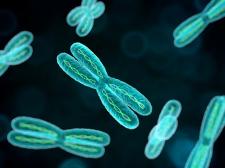CRISPR gene editing causes whole chromosome loss
By Claire Robinson,
GMWatch
| 11. 19. 2021
In another of a long line of studies showing unintended effects of gene editing, the CRISPR-Cas gene editing tool has been found to cause the loss of whole chromosomes and genomic instability in mouse embryos.
The finding is yet another nail in the coffin for human germline (heritable) gene editing with CRISPR, though there are plenty of people who persist in advocating it. The study comes hot on the heels of another, which found that editing human cells with CRISPR caused chromothripsis, an extremely damaging form of genomic rearrangement that results from the shattering of individual chromosomes and the subsequent rejoining of the pieces in a haphazard order.
The genetic material in certain (“eukaryotic”) microorganisms, plants, animals and humans exists in bundles known as “chromosomes”. In organisms that sexually reproduce (plants, animals, humans), two copies of each chromosome are inherited, one from each parent. Loss of a chromosome results in gene imbalance and function, leading to severe inherited diseases and is also frequently seen in cancer. So any procedure that induces chromosome loss is bad news and should be avoided...
Related Articles
By Diaa Hadid and Shweta Desai, NPR | 01.29.2026
MUMBRA, India — The afternoon sun shines on the woman in a commuter-town café, highlighting her almond-shaped eyes and pale skin, a look often sought after by couples who need an egg to have a baby.
"I have good eggs,"...
By George Janes, BioNews | 01.12.2026
A heart attack patient has become the first person to be treated in a clinical trial of an experimental gene therapy, which aims to strengthen blood vessels after coronary bypass surgery.
Coronary artery bypass surgery is performed to treat...
By Staff, ScienceDaily | 01.05.2026
Scientists at UNSW Sydney have developed a new form of CRISPR technology that could make gene therapy safer while also resolving a decades-long debate about how genes are switched off. The research shows that small chemical markers attached to DNA
...
Following a long-standing CGS tradition, we present a selection of our favorite Biopolitical Times posts of the past year.
In 2025, we published up to four posts every month, written by 12 authors (staff, consultants and allies), some in collaboration and one simply credited to CGS.
These titles are presented in chronological order, except for three In Memoriam notices, which follow. Many more posts that are worth your time can be found in the archive. Scroll down and “VIEW...




